
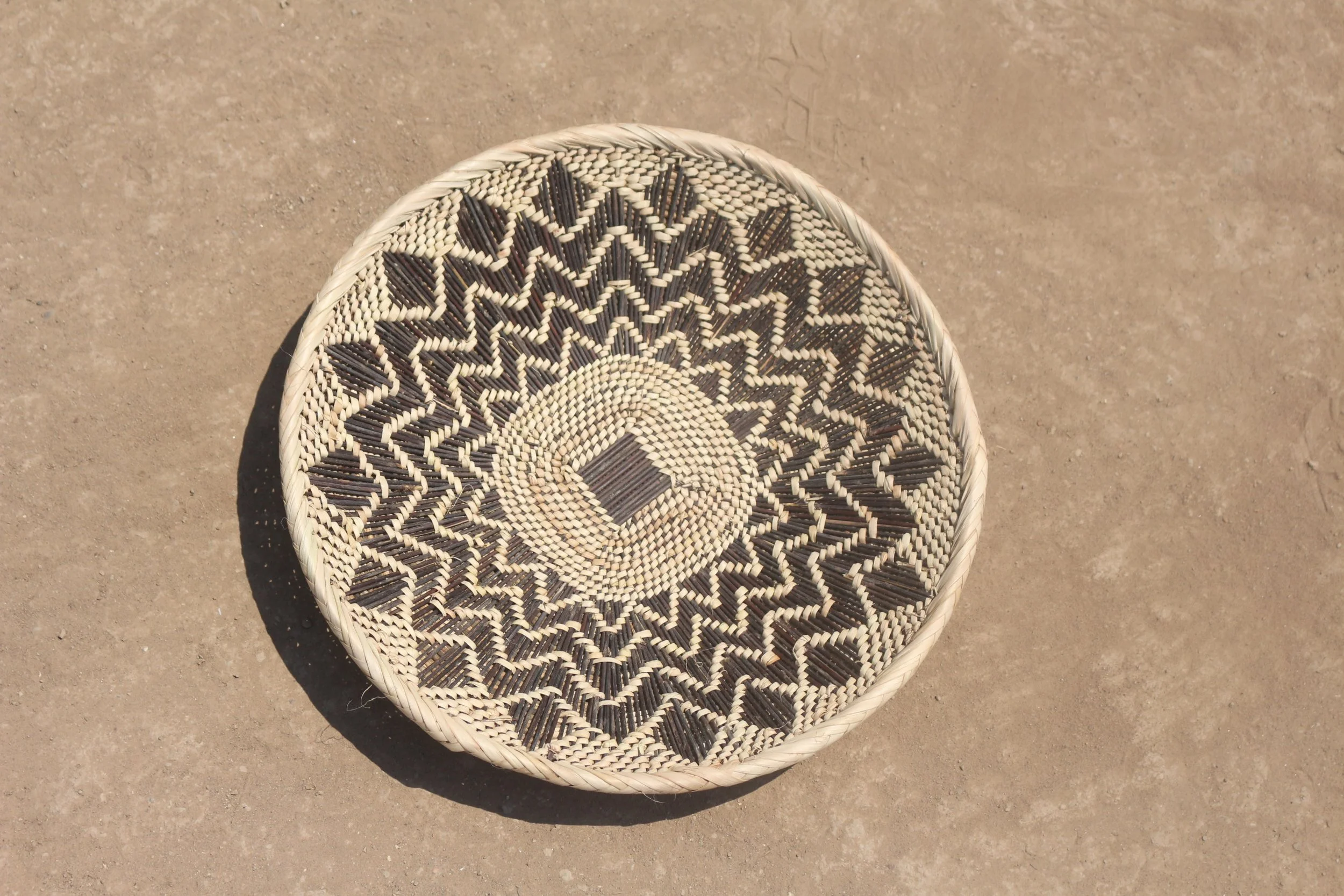
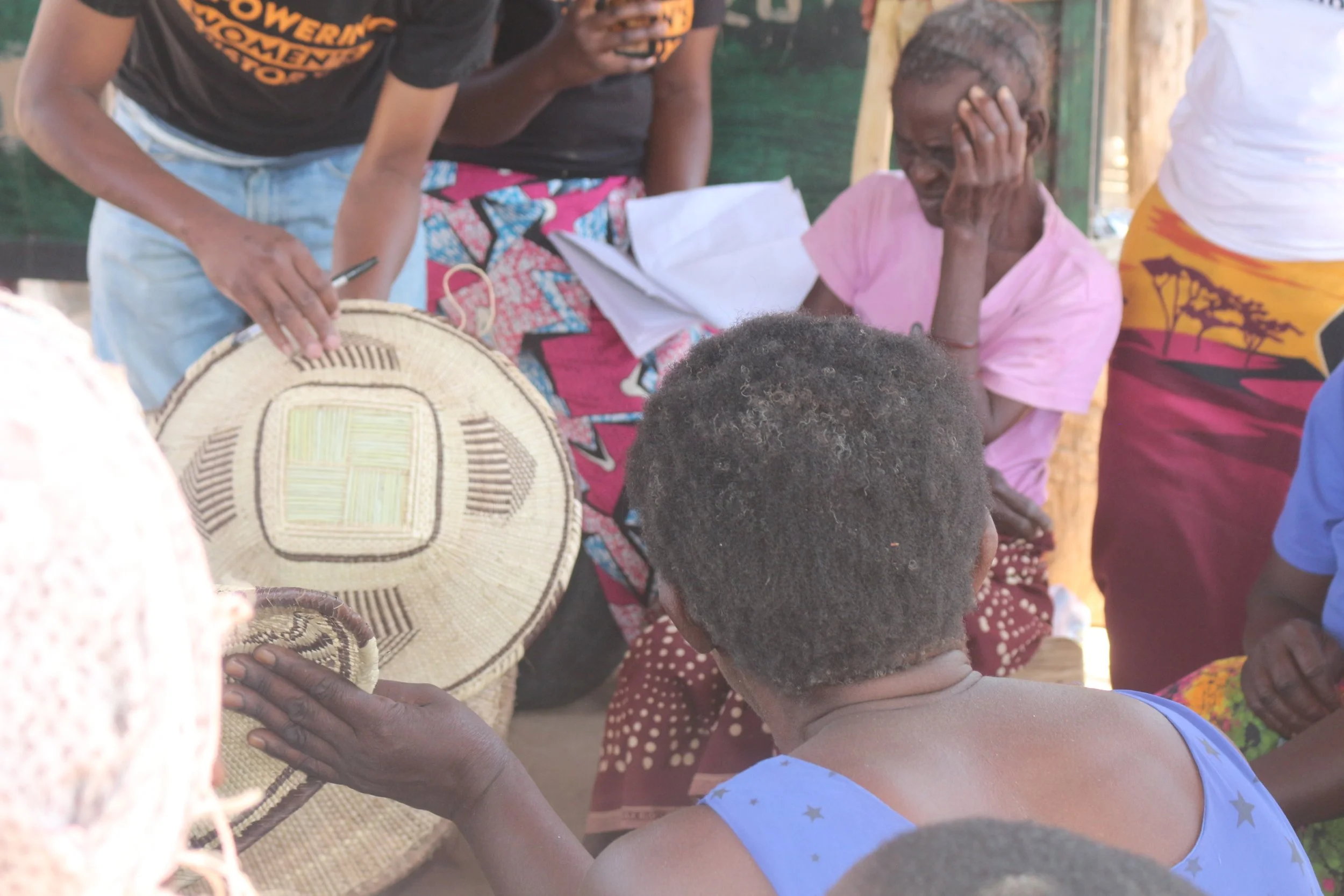


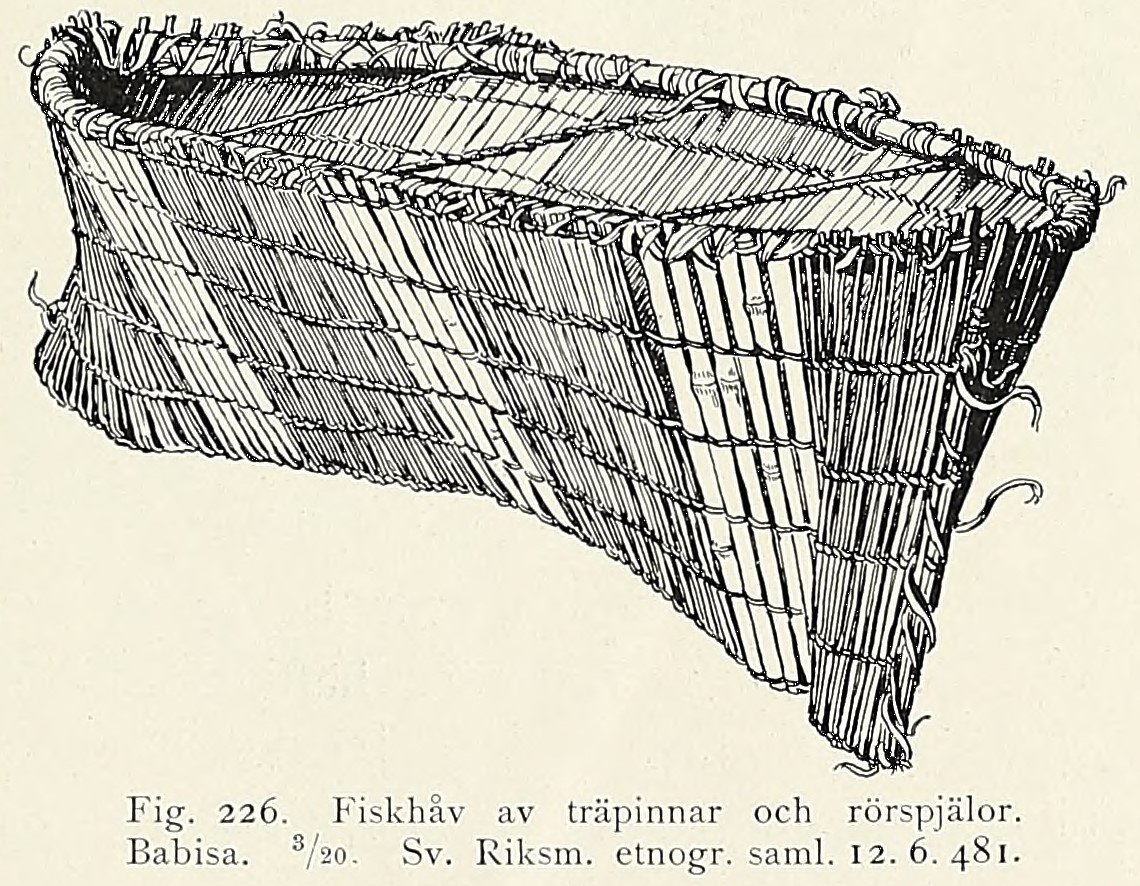
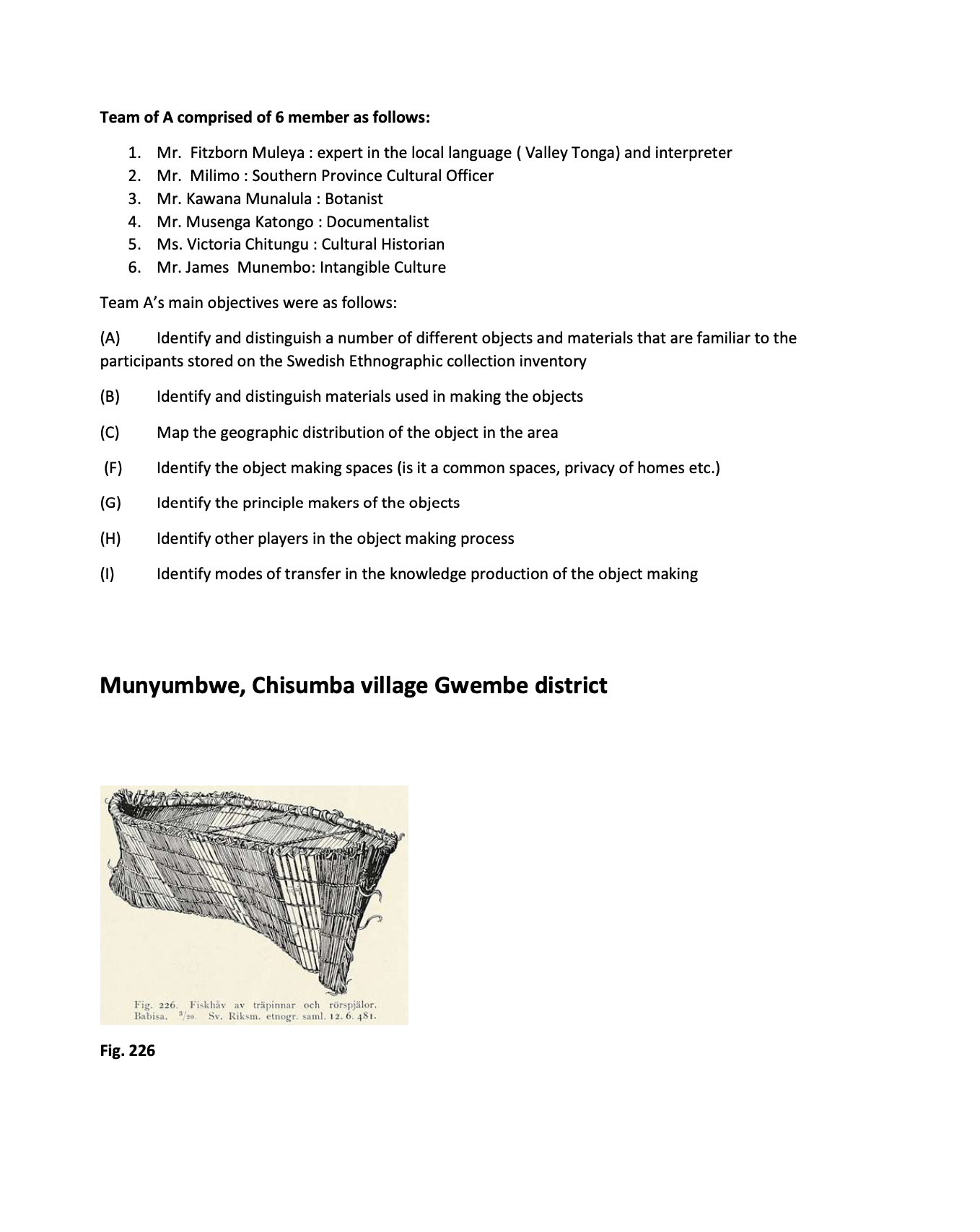
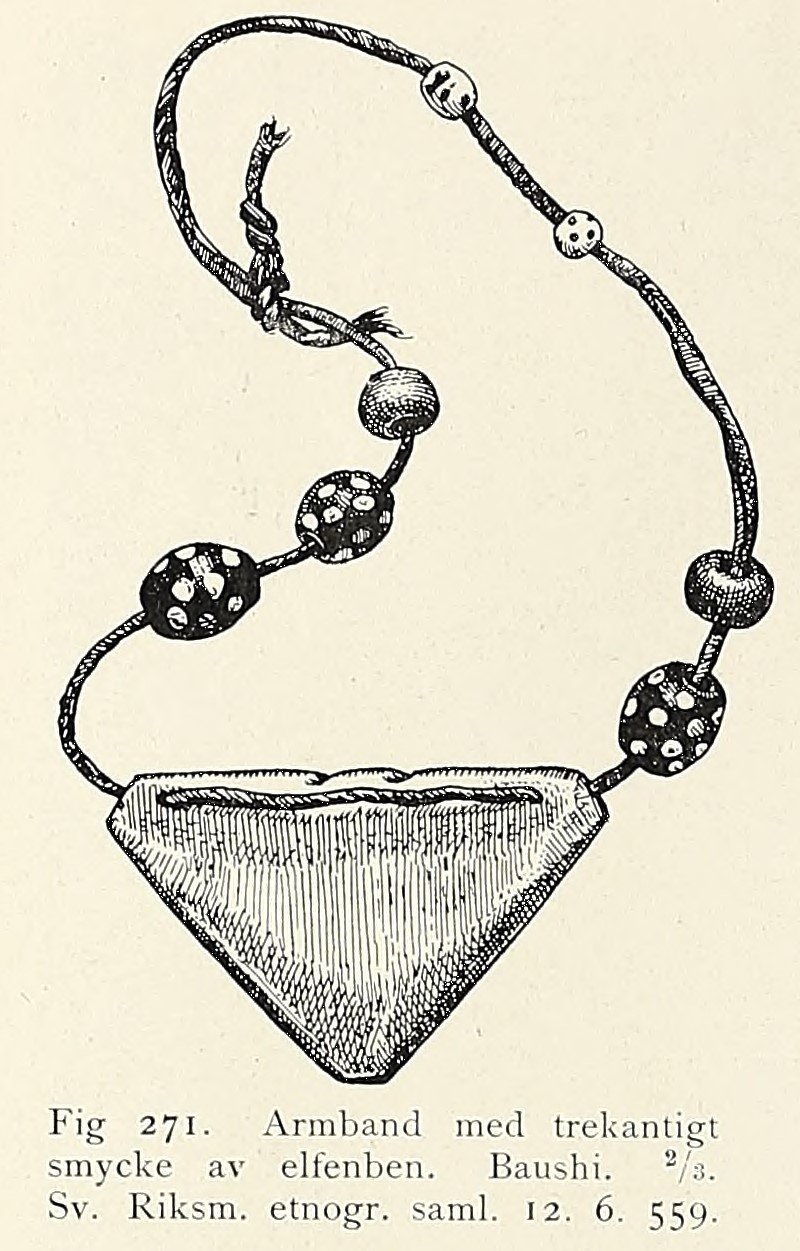
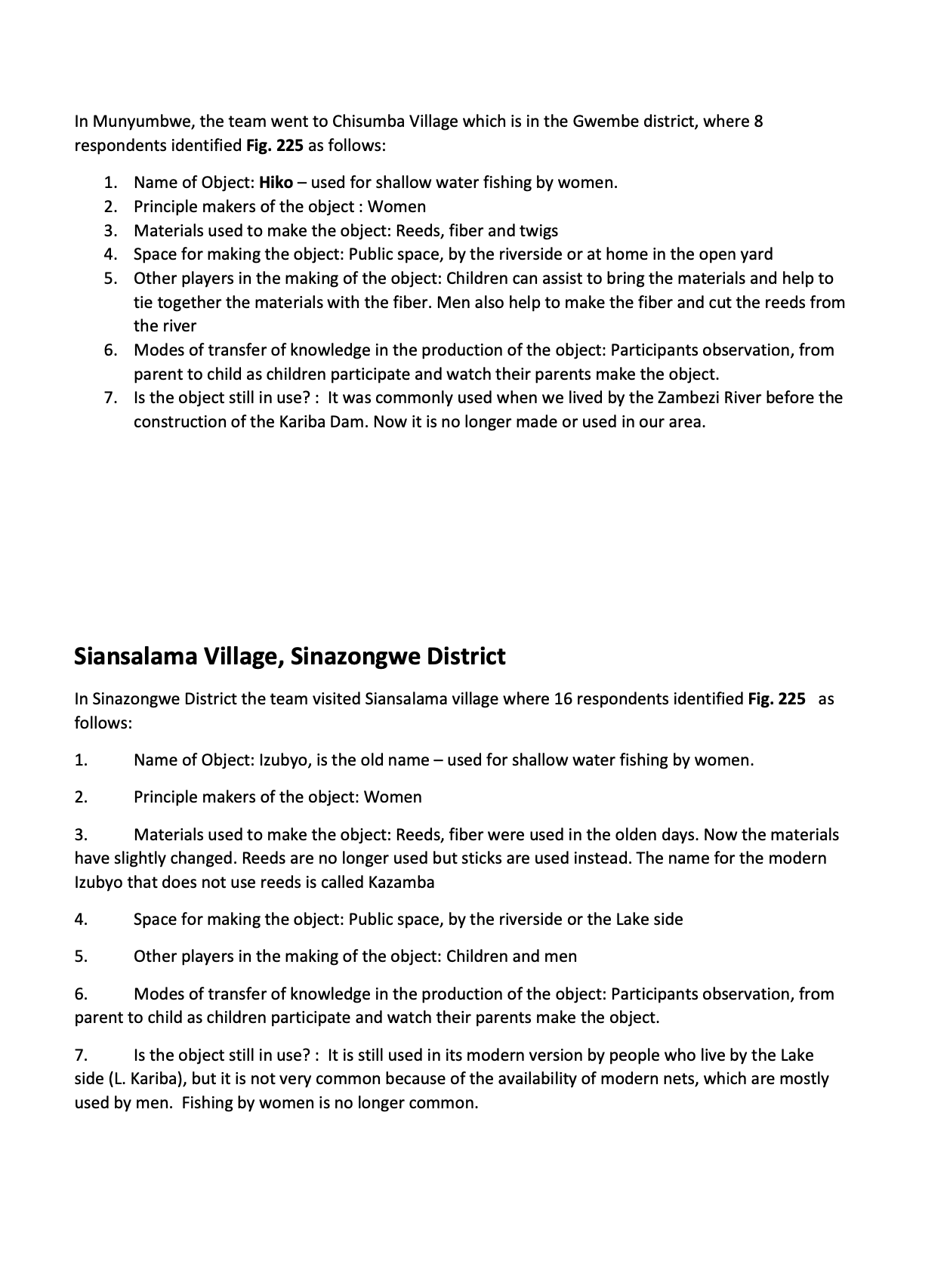
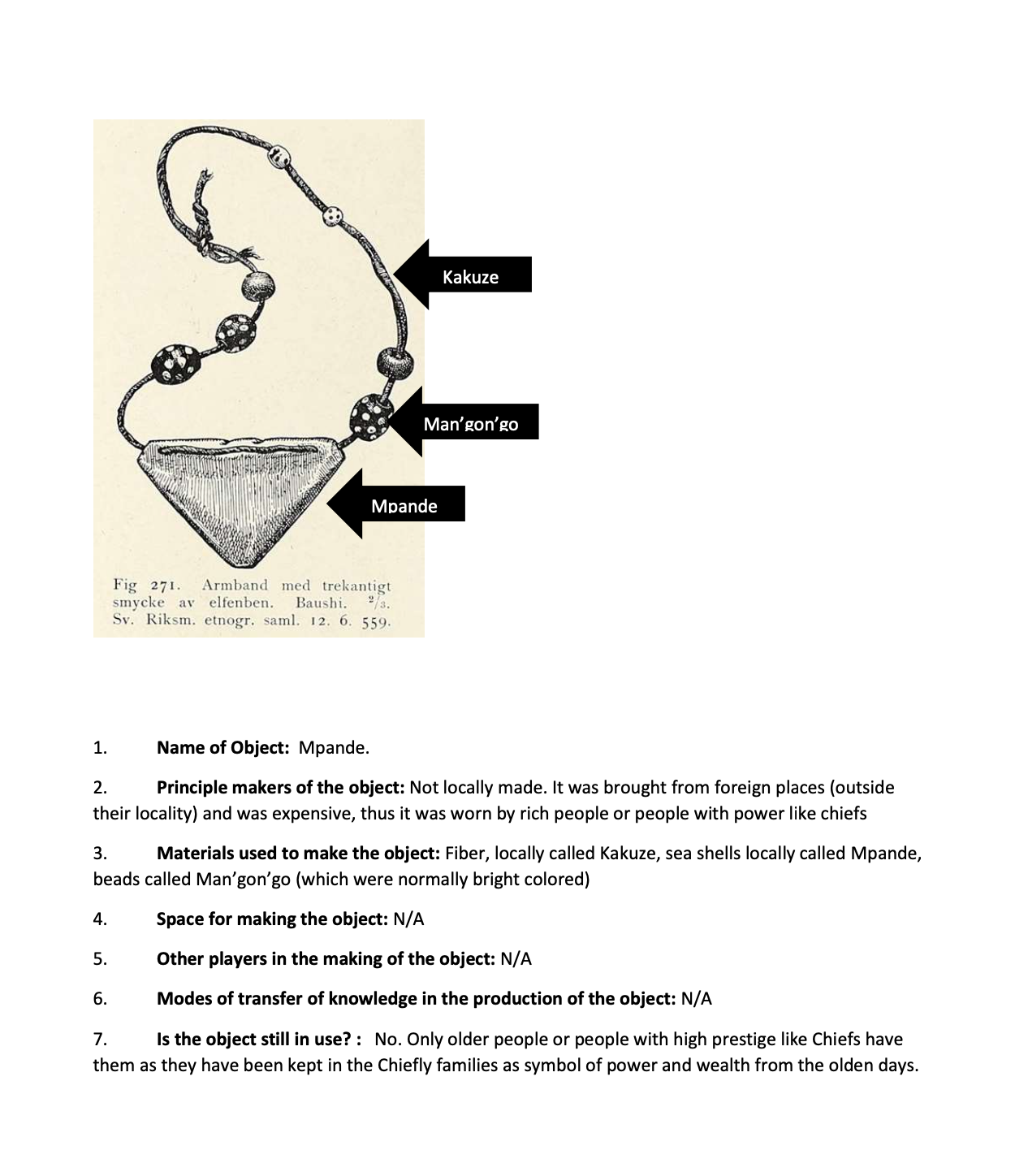


Empowering women's histories: Sharing Digital Heritage between Zambia and Sweden: The Gwembe Workshop
FIELD ACTIVITY REPORT
This report concerns a series of workshops conducted from 23rd October to 29th October 2020, in the Gwembe Valley of southern province of Zambia. This was part of a project whose aim is to develop a collaborative and interactive digital interface for sharing historical collections and women’s histories between Sweden and Zambia through the Swedish Ethnographic Museum (SEM) and the Women’s History Museum Zambia (WHMZ)
The workshops worked around the identification of a collection of 28 objects (artifacts and pictures) collected from Zambia, some as far back as the 1920s, held in the Swedish Ethnographic Museum. The objects lacked important context and historical interpretations that were not incorporated at the time of collection. The major aim of the workshops was to allow the “owners” of the objects to enrich the collection by providing this vital contextual and historical information associated with the objects that would make it possible for the WHMZ and SEM to improve the objects’ meta data for a wide audience that would want to access and use them on a digital platform that the two institutions are working on.
To achieve this a total of four workshops were held in three districts; Gwembe, Zimba and Sinazongwe which all form part of the Gwembe Valley. The report covers these workshops that involved a total of 48 people in four villages namely, Munyumbwe, Siabaswi, Madyongo and Siampondo. All the participants were residents of the villages in which all had lived for more than 10 years with 38 of them born there.
The workshops were divided into two teams of researchers, A and B. Team A‘s major aim was to engage object owners in and developing an inclusive methodology of developing supporting knowledge of the objects on the digital platform. Team B’s focus was to identify the best software and tools to enhance digital access to historical collections by the owners of objects in village settings and develop a participatory methodology for developing end users of the platform digital platform with owners of objects as contributors and end users of the platform
To view the full report email hello@whmzambia.org with the subject title ‘Request for Gwembe Valley Report’ and we will happily share it with you.
